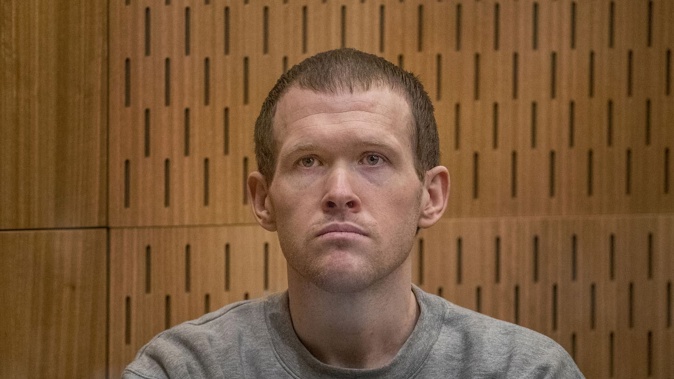

Lawyers acting for the Christchurch Mosque shooter have won a legal bid to keep their identities secret amid fears of “vigilante justice” and “retaliation” for them and their families.
Australian terrorist Brenton Tarrant was jailed for life without parole in 2020 for murdering 51 Muslims at the Al Noor and Linwood mosques in Christchurch on March 15, 2019.
Despite pleading guilty to 51 counts of murder and 40 of attempted murder, Tarrant then launched a bid to appeal both his conviction and sentence in late 2022. He has also sought a judicial review of his prison conditions in 2023.
Two lawyers were assigned to Tarrant in 2023 to represent him in his appeal and they have since applied for a court order permanently suppressing their names.
NZME understands this is the first time in New Zealand that lawyers acting for a defendant have been granted name suppression.
Today, the Court of Appeal publicly released a decision granting their application, meaning Tarrant’s lawyers will be known to the public only as Lawyers A and B.
Lawyer A told the court that while they had appeared in many high-profile cases and had received their share of abusive emails, Tarrant’s case was unique and they were concerned for their safety and that of their family.
Lawyer B is also an experienced criminal defence lawyer and told the court they were concerned about the hardship they could suffer in being associated with Tarrant.
“I have received threatening and cruel communication from members of the public in the past. This has been a direct result of mainstream and social media publications about my cases,” Lawyer B’s submissions to the court read.

Brenton Tarrant at an early court appearance after his arrest. Photo / NZME
“Comments online can be cruel and shocking. This is something that counsel should not have to deal with undertaking our jobs.
“My family are innocent bystanders and ought not be exposed to any threats or cruel comments.”
Both lawyers argued they were likely to become victims of “vigilante justice” or “retaliation” if they were publicly identified, and pointed out that Tarrant’s trial lawyers required a police security detail because of threats they’d received.
Suppression was opposed by four media organisations, including NZME, as well as the Crown, which said there was no hard evidence of any potential retaliation for the two lawyers.
The Crown submitted that ordinarily, suppression was granted to people connected to a proceeding without choice, such as schools, employers or family members of defendants, and that lawyers were in a different category.
However, in the judgment issued by the Court of Appeal, Justice David Collins said that while Lawyers A and B hadn’t identified specific threats against them, their evidence did illustrate the type of harm lawyers who represent high-profile clients can be exposed to.
“Regrettably lawyers, like others who occupy significant positions in society, have become the targets of extreme abuse and threats from people who use social media as a weapon to vent their anger and hatred of others; especially lawyers who represent controversial clients,” Justice Collins said.

Auckland-based defence lawyers Jonathan Hudson (left) and Shane Tait previously represented Tarrant and required a police security detail for their protection. Photo / Sam Hurley
“We are satisfied Lawyer A and Lawyer B will likely be the recipients of abuse and threats from people hiding behind the relative anonymity that social media platforms provide. It is impossible to predict the exact sources of this abuse and we consider it possible that the abuse would come from both those who abhor and those who support Mr Tarrant.”
Justice Collins said Tarrant was a “unique offender in the annals of Aotearoa New Zealand’s criminal history” and his crimes ranked him as the worst mass murderer in the country’s history, as well as being a convicted terrorist.
“While we agree — and Lawyer A and Lawyer B accept — that defence counsel can be expected to bear some level of adverse response from the public for the work they do, the circumstances of this case and the evidence before us satisfies us that the level and character of the abuse and threats Lawyers A and B would likely face are beyond the hardship which counsel should be expected to weather and would constitute undue hardship,” he said.
Barrister and constitutional law expert Graeme Edgeler told NZME that as far as he was aware, this was the first time lawyers have been granted name suppression.
“Having read the reasons for why suppression was granted I’m not surprised, but a little saddened that it was necessary,” Edgeler said.

Legal expert Graeme Edgeler said this was the first case he'd heard of where lawyers were being granted name suppression. Photo / Hagen Hopkins
Edgeler said the ruling was potentially precedent-setting in that now lawyers know they can fall under the same suppression laws as victims and other parties connected to a case.
However, he doesn’t predict it’s something that will be applied for often.
“Possibly only in the highest-profile cases. I don’t expect the type of case will matter but rather the profile,” he said.
“I don’t think I would have personally thought to apply for suppression, but now it’s something I and other lawyers know exists.”
Take your Radio, Podcasts and Music with you









